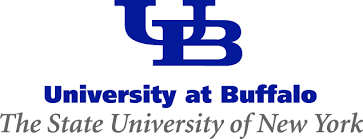
University at Buffalo, NY
Department of Romance Languages and Literatures
Framing the Self(ie)
Heterogeneity of identities in (non)spaces
1st-2nd april 2016
Identity is a complex, multi-faceted, often fragmented negotiation of social subjects and actors, yet it remains a central motif of human existence. While conscious creation of identity is more prevalent than ever, the emergence of mass social media also encourages the individual to create not only a self-identity, but an external presentation of that self, and alternate selves. On their Facebook timeline, blogs, Twitter, Instagram and more, individuals identify themselves, but also identify with relevant groups or trends by likes, hashtags, and pin it buttons. The “selfie” is the perfect materialization of this duality, as it produces an ephemeral identity struggling for greater recognition.
How might classic theories of identity (such as developed by Michel Foucault, Jacques Lacan, Judith Butler, et al.) frame or – perhaps more interestingly – be re-framed by the seemingly inescapable mediating forces of today’s technology? Judith Butler, to take only a single example, posits that without “others” there can be no identity, that no “I” can exist without social and political grounds. At our conference we would like to discuss the “I” in relation to the human heterogenic existence in (dis)placement and (non)spaces. How was the “I” defined a century ago and how is it perceived today in relation to its sociopolitical (non)space? How are our identities willingly or forcefully exposed in this globalized world?
Whether in media, gender, or transnational forums, these “troubles in identity” open multiple debates, be it identity politics, identity theft, or the complex ways our “self” narratives are both a grasping after and a performance of identity through their many manifestations in the social, political, and aesthetic realms at a time that “auto fiction” seems to become the generalized writing mode replacing the traditional novel. More particularly, this conference invites you to reflect on the elaboration of multi-layered identity spaces as a way of (re)defining, (re)inventing and ultimately (re)framing the self within fields of the humanities. How might the theories of social scientists Charles Horton Cooley, Jean Piaget, and Lawrence Kohlberg apply to an era of intense identity awareness and self- awareness?
The conference committee welcomes proposals that frame identities in any type of medium of any era, as well as of any discipline and critical theory. Multidisciplinary approaches are highly encouraged. Presentations may lead to publication in our “SUNY Buffalo Romance Studies Journal”.
We hope to explore Identities through:
– Performing and Visual Arts
– Contemporary and Social Media
– Literature & Language
– Gender, Queer, and Sexual Studies
– Body and Disabilities Studies
– Psychology
– Political and Socio-Cultural Spaces
– Historical and Environmental Changes
This conference will provide a collaborative environment for students and faculty to present and discuss their work in an intellectual and dynamic atmosphere. Presentations should be no more than 20 minutes long, technology will be provided upon request.
Proposal Submission by January 15, 2016.
– 250-word abstract in English, institutional affiliation, and short biography including your research interests
– Preference will be given to presentations in English, but communications in Romance languages will be considered upon request and depending on demand
– Please email submissions and enquiries to ubromance@gmail.com
Looking forward to reading your proposal,
The RLL Conference Committee